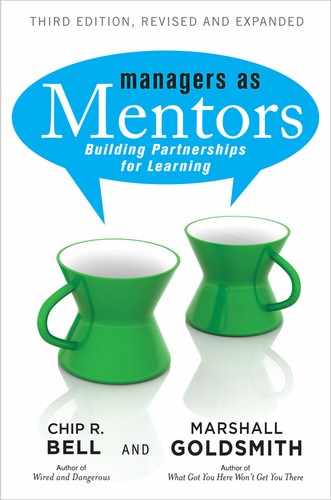Communicating Credibility, Allen-Style
Trust depends on credibility. We trust another when we believe the person has the wherewithal to actually perform what is promised or needed. Wherewithal includes competence, credentials, and correct conduct. We examine the plaques on the physician’s wall, see the badge on the police officer’s uniform, or hear the tone of the pilot’s voice during in-flight turbulence to gain clues into matters of credibility.
Allen was great at demonstrating credibility as a step in trust building. “What if we did it like this?” prefaced his lessons in stage performance. His tone carried three essential ingredients for communicating credibility: exposition, exploration, and inclusion. Allen knew how to show off without being a show-off. His display revealed the edge of his enormous talent in a fashion that gave his protégé a kind of “this guy is really good” confidence in him without unleashing an intimidating internal reaction of “I could never do that.” His lessons were “we” lessons, as in “a smart person mentoring a smart person.” “He was always willing to share what he knew,” said Ed McMahon, “as if it was yours all along and he was simply returning something he had borrowed.”
How does a mentor communicate credibility without alienating or intimidating the protégé? Credibility needs to fit the context, and the mentoring context is one of support and partnership. A boxing coach might gain credibility with a demeanor as clipped and gruff as an upper cut. The credibility context for a surgeon might be more factual than illustrative, grounded more in technique than in rapport. But in the business world, credibility is best expressed more subtly—in the way one might add a pinch of salt to a bland dish. Credibility should enter the relationship as if somehow invited by the protégé, not sent by the mentor.
Tell a personal story that uses your expertise as the backdrop, not the subject. “When I was helping Stan Dupp craft his strategic plan, we faced the dilemma of how to get the enthusiastic endorsement of the union.” Preface an affirmation with a small tidbit from your resume. “Your new role sounds as exciting as the regional VP slot I had in South Africa in ’88!” Keep in mind, the intent is to reveal, not brag. A boasting attitude will shift the spotlight onto you, not your protégé. Share a take-away that benefits the protégé but trumpets your competence or eligibility. “You might find this white paper I wrote helpful in explaining some of the craziness of this industry.” Ask questions that reveal expertise but never in a testing manner or egotistical fashion. Remember, credibility is a tool for trust—your protégé’s trust! Consider your exposition of your talents from the perspective of what your protégé needs, not what you need.
